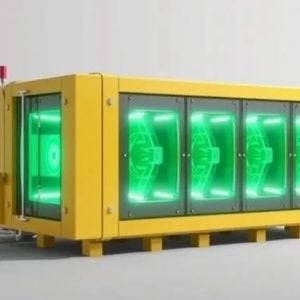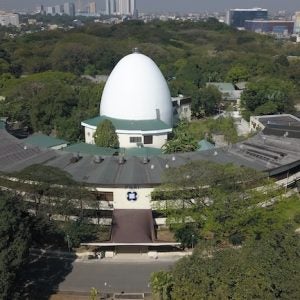The International Atomic Energy Agency (IAEA) is increasingly concerned about the difficult conditions facing staff at Ukraine’s Zaporizhzhia nuclear power plant (ZNPP) and it must go there as soon as possible to address this and other urgent issues, Director General Rafael Mariano Grossi has said.
Grossi said he was continuing his determined efforts to agree, organise and head an IAEA-led international mission to conduct essential nuclear safety, security and safeguards activities at the ZNPP, stressing again that “other considerations should not prevent” it from taking place.
The IAEA is aware of recent reports in the media and elsewhere indicating a deteriorating situation for Ukrainian staff there, he said.
“The situation at this major nuclear power plant is clearly untenable. We are informed that Ukrainian staff are operating the facility under extremely stressful conditions while the site is under the control of Russian armed forces. The recent reports are very troubling and further deepen my concern about the well-being of personnel there,” he added.
Grossi noted that the seven indispensable pillars for ensuring nuclear safety and security in Ukraine that he outlined at the beginning of the military conflict include one stating that NPP staff “must be able to fulfil their safety and security duties and have the capacity to make decisions free of undue pressure”.
Further underlining the necessity of an IAEA-led mission travelling to the facility in southern Ukraine, several other safety and security pillars have also been compromised at the ZNPP in recent months, including those regarding the physical integrity of nuclear facilities, secure off-site power supplies, and uninterrupted logistical supply chains, he said.
In relation to safeguards, IAEA inspectors and safeguards technicians must carry out important verification activities at the site, where large amounts of nuclear material are present.
Earlier this month, the IAEA and the ZNPP operator worked together to restore the remote transmission of safeguards data from the facility to IAEA headquarters after a technical interruption of almost two weeks. But essential nuclear material verification activities, such as physical inventory verifications, cannot be done remotely and require the physical presence of IAEA inspectors, IAEA said.
The interval of physical inventory verifications at NPPs cannot exceed a specified duration. This is particularly important at two of the units at ZNPP. In addition, these units have been refuelled in recent months and a physical verification of the nuclear material therein is a safeguards pre-requisite before re-starting them.
“This week, I dispatched safeguards inspectors to Ukraine to conduct essential verification activities at the South Ukraine NPP. Unless I am able to do the same for the Zaporizhzhia NPP as soon as possible, the implementation of safeguards in Ukraine will be compromised,” Director General Grossi said. ZNPP operator, Ukrainian nuclear utility Energoatom has said on several occasions that it will not permit IAEA to visit ZNPP while it is under Russian control and has demanded political statements from the Agency as a condition for any visit. Russia has said it is willing to facilitate a visit.
The IAEA continues to receive safeguards data from its systems installed at the other three operational NPPs in Ukraine and from the Chornobyl NPP. Regarding Ukraine’s operational reactors, Ukraine informed the IAEA that eight are currently connected to the grid, including two at the ZNPP, three at the Rivne NPP, two at the South Ukraine NPP, and one at the Khmelnytskyy NPP. The seven other reactors are shut down for regular maintenance or held in reserve. Safety systems remain operational at the four NPPs, and they also continue to have off-site power available, Ukraine said.






